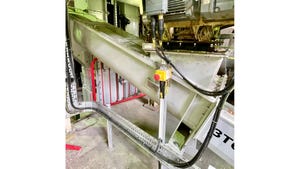November 18, 2008
I.D. Systems Inc., a leading provider of wireless asset tracking and management solutions, has announced that it has received a follow-on purchase order from Kellogg Company to implement I.D. Systems’ Wireless Asset Net industrial vehicle management system for a fleet of material handling equipment at a major Kellogg manufacturing and distribution facility. This facility-—Kellogg’s second to deploy the wireless technology—-is in Battle Creek, Michigan, also the location of Kellogg’s world headquarters.
“Kellogg wants to adopt best practices aimed at improving safety, increasing productivity, and reducing costs in their workplace, and I.D. Systems’ wireless technology is helping Kellogg meet its goals for optimizing industrial fleet management,” said Peter Fausel, I.D. Systems’ executive vice president of sales, marketing, and customer service. “We are very gratified to expand our relationship with a world-class consumer products company like Kellogg and we look forward to reproducing our best-practice technology for Kellogg at more facilities across their enterprise.”
Kellogg is the world’s leading producer of cereal and a leading producer of convenience foods, with 2007 sales of nearly $12 billion. Kellogg products, including leading brands such as Kellogg's, Keebler, Pop-Tarts, Eggo, Cheez-It, Morningstar Farms, and Famous Amos, are manufactured in 19 countries and distributed in more than 180 countries around the world.
The Wireless Asset Net system improves productivity in manufacturing and distribution operations by establishing accountability for use of equipment, ensuring equipment is in the proper place at the right time, streamlining work flow through automated messaging, and providing management with unique metrics on—and controls over—equipment utilization. The system also improves workplace safety and security by restricting vehicle access to trained, authorized operators and providing electronic vehicle inspection checklists. In addition, the system reduces maintenance expenses by automatically uploading vehicle data, reporting vehicle problems in real time, scheduling maintenance according to actual vehicle usage rather than on a calendar basis, and helping determine the optimal economic time to replace equipment.
You May Also Like


